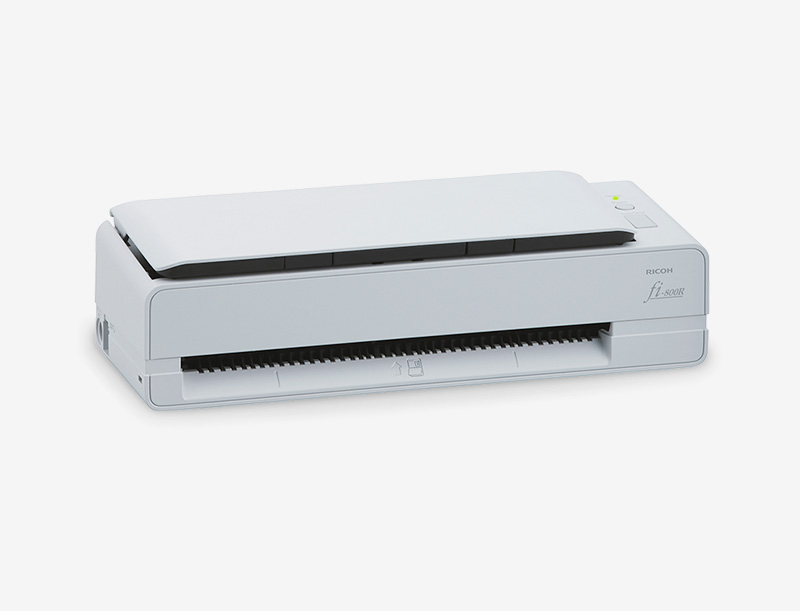Turning your dental office into a digital operation could enhance workplace efficiency, patient communication, and legal compliance.
Digitization is good for dental office staff, patients, and profits. Electronic dental records (EDRs) are convenient and secure. Digital communication is fast. Electronic records management systems and document scanners help paperwork take a backseat.
A digitized dental practice needs the right tools and best practices. Find the right software and hardware and train your staff to operate them. Improved workflow, compliance, and even patient outcomes will follow.
The benefits of digitization
Digitizing a dental office is an involved process, but the core principle is simple. Whenever possible, use digital tools instead of paper ones. Reduce paperwork. Securely send appointment reminders by text, patient x-rays by email, and so on.
Digitization is especially useful for dentists and their employees. Dentists can securely share images and treatment plans with other medical professionals online. Many office workers can access electronic records at once without damage or loss. Automated emails or text messages for patients free up office managers' time.
Digitization benefits patients as well. Electronic forms are simpler than paper ones, especially with smartphone support. Online follow-up appointments save trips to the office. That is especially useful for patients in rural areas, or who have limited mobility. Patients can even request refills for prescription drugs electronically, eliminating tedious intermediary steps.
Did You Know?:The SP-1130Ne is a plug-and-play, TWAIN-compatible scanner with high performance and a low price point. These features make it a great choice for back-office scanning. Click here to learn more.
Records management software
To manage electronic patient records, you'll need records management software. Options include the open-source OpenEMR and the tried-and-true Microsoft SharePoint. Whichever you choose, ensure the program offers a few key features:
- Compliance and security: Records should be access-controlled. They should be encrypted and audited for compliance with state and federal laws.
- Scalability and customization: The software should support many different file types. It should also offer custom input fields and templates.
- Centralized repository: Files should exist in a single location. Users should be able to find what they need via keyword searches.
- Document capture and indexing: The software must accurately parse data from scanned documents. It must store those documents in the correct location.
Whichever program you choose, your staff will have to learn how to use it. Training options include everything from IT-led staff workshops to online courses. Ensure each staff member demonstrates competency before they receive full access. EDRs often contain private, sensitive information. Failing to secure it could invite a lawsuit — or worse.
Challenges and compliance
Digitizing your dental office can present challenges for security and compliance.
EDRs contain both clerical and medical data. This makes them a potential treasure trove for cybercriminals. As such, you need to secure them as thoroughly as possible. Protective measures include password protection, file encryption, access control, and local intranet storage. Specific solutions will vary from office to office.
Years' or decades' worth of paper records can also make complete digitization difficult. Use a document scanner rather than asking a staff member to type everything up. For instance, the fi-800R can scan hundreds of pages each hour and digitize their contents.
Finally, your digital documents must meet state and federal laws. Compliance laws vary from state to state for dental records. The Health Insurance Portability and Accountability Act (HIPAA) has more specific demands for compliance, including a written privacy policy and a dedicated security official.
As with physical documents, there are no shortcuts to legal compliance with digital documents. You can use the ADA's website to research your state's laws, or consult the HIPAA website. Your records management software should help you create, maintain, and delete data as appropriate.
Did You Know?:The fi-800R is a great fit for front-desk scanning. Its compact size, durable construction, and versatile capabilities help it digitize a range of documents. Click here to learn more.
Our recommendation: fi-800R
Those who are looking to digitize their dental offices have no shortage of options. We take great pride in having spent the last 50+ years researching, designing, and developing some of the most advanced and powerful electronics in the world, including our professional grade fi Series scanners.
Built to purpose for the most demanding document handling jobs, fi and SP scanners are capable of processing tens of thousands of pages per day at the highest levels of accuracy. Their intuitive integration capabilities with all existing work suites minimize time-to-value for businesses looking to invest in tools that will pay dividends for years to come.
The fi-800R is the ideal fit for front offices. Its compact design saves valuable desktop space. Its fast, double-sided scanner tackles a range of documents. Its dedicated front feeder digitizes thick or unusually shaped documents. The fi-800R’s integrated TWAIN connectivity works with your choice of scanning software solutions and its skew correction and active separation technology allow it to work with minimal rescans or jams. Click here to learn more or shop the rest of our production scanner line.

Note: Information and external links are provided for your convenience and for educational purposes only, and shall not be construed, or relied upon, as legal advice. PFU America, Inc. makes no representations about the contents, features, or specifications on such third-party sites, software, and/or offerings (collectively “Third-Party Offerings”) and shall not be responsible for any loss or damage that may arise from your use of such Third-Party Offerings. Please consult with a licensed attorney regarding your specific situation as regulations may be subject to change.


